The 2030 Agenda for Sustainable Development, adopted in 2015 by all United Nations Member States, provides a shared blueprint for future peace and prosperity for people and the planet. The Agenda centres around seventeen Sustainable Development Goals (SDGs), an urgent call for action by all countries in a global partnership.
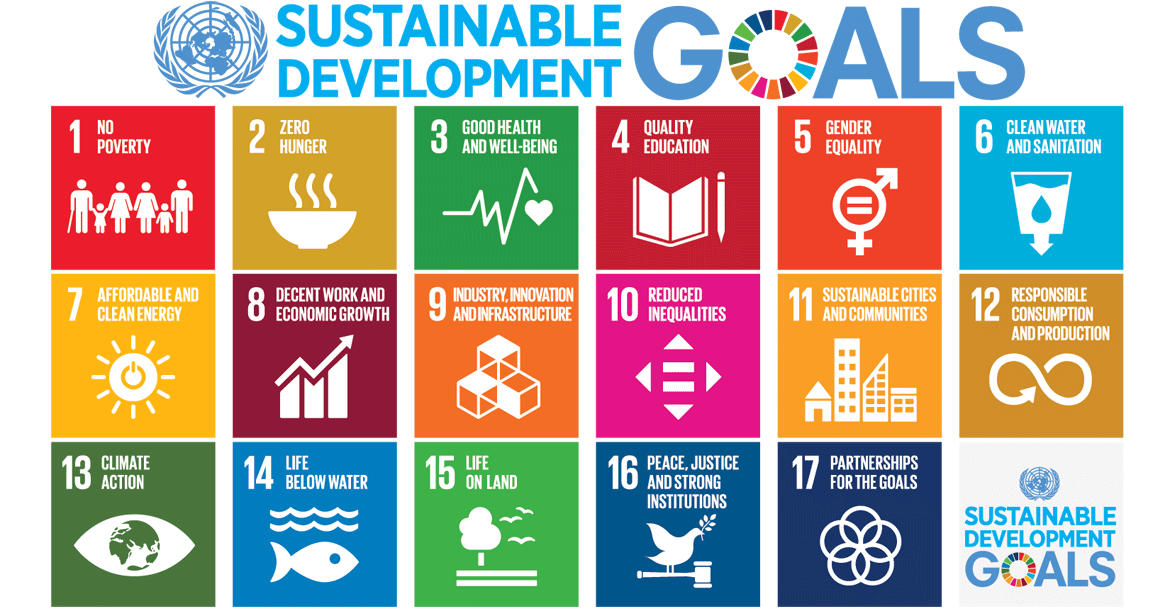
Photo: Sustainable Development Goals
Each of the SDGs are inherently interlinked, with progress on one goal positively impacting on other goals. As such, achieving progress on SDGs 4 (Quality Education), 5 (Gender Equality) and 6 (Clean Water and Sanitation) is integral to making all seventeen SDGs a reality by 2030. The Soroptimist International (SI) President’s Appeal 2017 – 2019 ‘Women Water & Leadership’ tackles these core SDGs, whilst also addressing many other elements of the SDGs as it promotes the equal inclusion of women in water resource governance.
The President’s Appeal moves beyond long-held stereotypes of women as ‘victims’ and ‘beneficiaries’ of the water and climate crisis. It seeks to develop projects in conjunction with the women themselves, projects which not only support access to water, but go further in empowering women and positioning them as innovators, decision-makers and key providers and drivers of water, food and economic solutions.
‘Women, Water & Leadership’ has gathered great momentum and is so far supporting projects in Kenya, Bulgaria and Malaysia with plans in place for a forthcoming project in Indonesia. Educating, empowering and enabling women and girls to lead in water, each project additionally responds to the specific immediate needs of communities, including access to safely managed water and sanitation facilities, enhanced food security and cleaner energy, increasing economic independence for women and their families, thereby breaking the cycle of poverty.
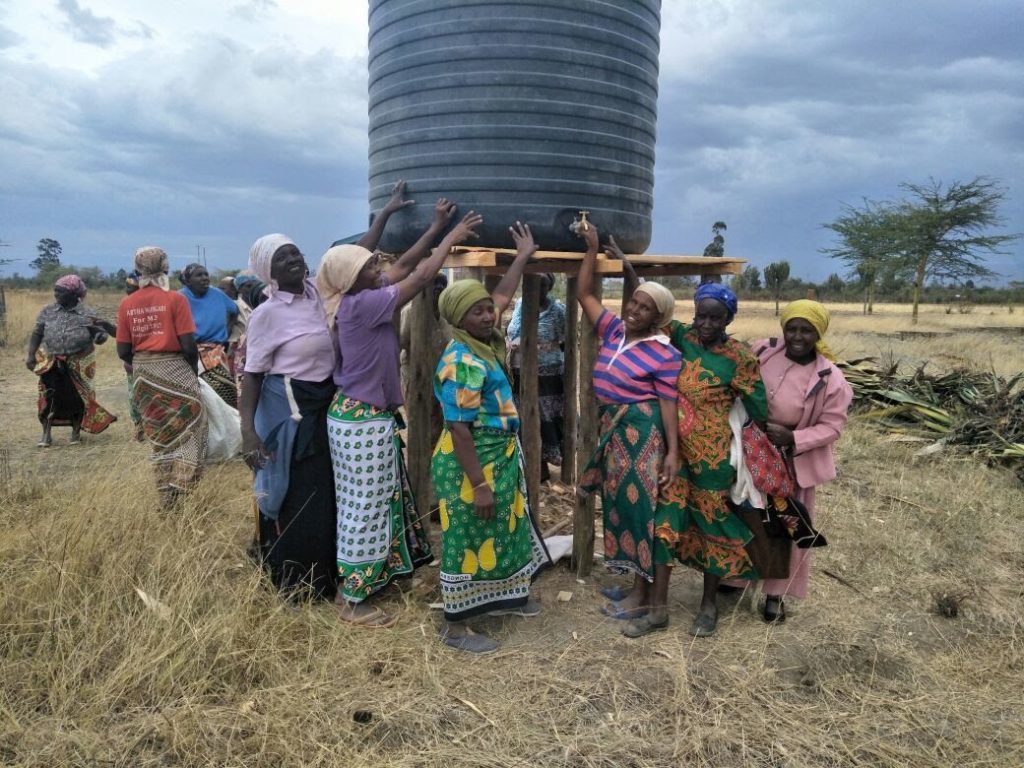
Photo: A water tank to ensure the women and their new agricultural practice is sustainable
In Kenya, the SI President’s Appeal project is implementing the SDG targets through a unique agricultural education and training programme in rural Nakuru County, north-west of the capital Nairobi, working with the Mwihoko Women Group, benefiting from the on-the-ground support of the SI Union of Kenya and local stakeholders.
The Mwihoko Women Project is achieving increased food security for 2,000 persons through properly cultivated selected crop over 396 acres (SDG 2 – Zero Hunger), creating 126 multi-story gardens, improving the economic situation for women farmers as a result of using best practices and appropriate technology (SDG 5 – Gender Equality).
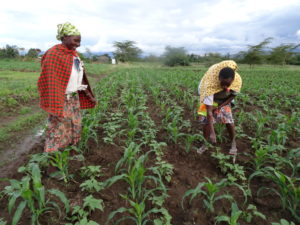
Photo: Two-day training programme for women farmers
A community resource centre was refurbished and a farming demonstration plot created, including trees, vegetable seed nurseries and beehives, and technologies and tools were provided enabling high-quality and relevant training programmes to be delivered to women (SDG 4 – Quality Education). Two water tanks and a water pan were installed and connected to a toilet block, enabling the community resource centre to be fully water self-sufficient (SDG 6 – Clean Water and Sanitation).
Women are educated in sustainable farming techniques such as seed planting and double ploughing with a variety of crops planted (SDG 11 – Sustainable Cities and Communities). The women have recently attended a six-day residential farmer training course at Egerton Agricultural University where they were empowered and educated in new farming techniques, crops, seeds, entrepreneurship and finance.
Many nutritious vegetables have now been harvested, with greatly increased yields meaning that women can rely upon their own crops rather than purchasing vegetables for home consumption (SDG 3 – Good Health and Well-Being) and develop opportunities for future economic growth (SDG 8 – Decent Work and Economic Growth).
To see a video with more from the Mwihoko Women Project, please click here.
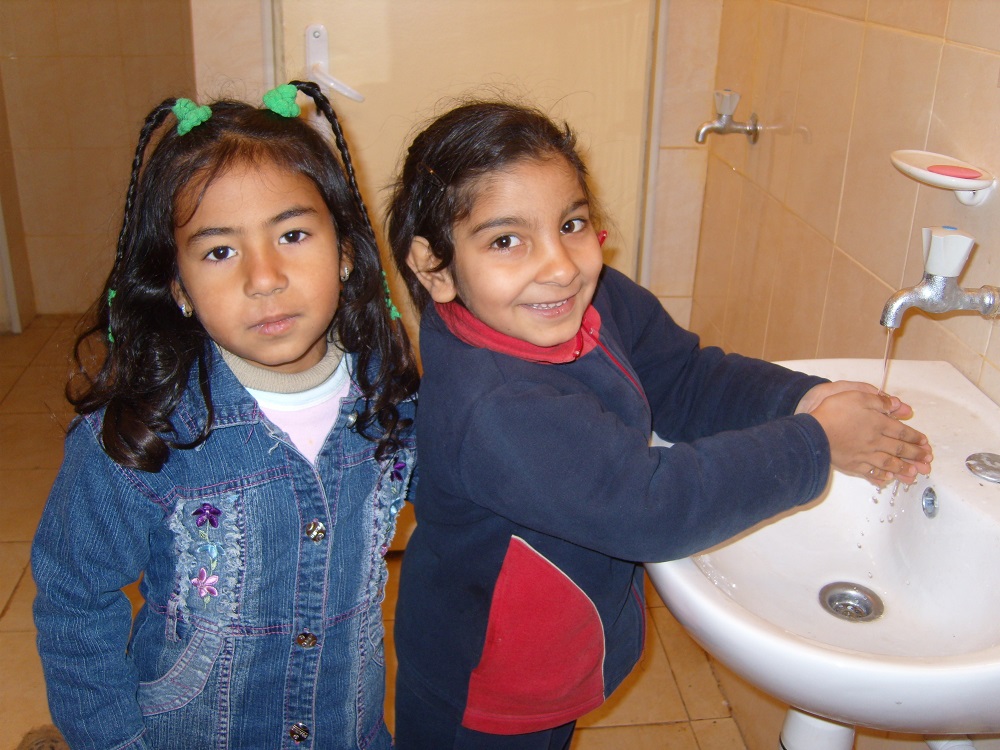
Photo: Girls practice handwashing
In Bulgaria, the SI President’s Appeal project, WeWash (Women Empowerment through Water, Sanitation, and Health), is reshaping the lives of unemployed, retired and low-income women and girls in Stara Zagora (SDG 1 – No Poverty) with the assistance of local SI Club Plovdiv and the Earth Forever Foundation.
The WeWash project is motivated by a need to mobilise women and girls from rural communities, through capacity-building and development of leadership skills, whilst addressing the immediate water and sanitation issues of local households and communities. WeWash trains women on complex national water legislation and teaches them the necessary skills to communicate with institutions and government bodies to enforce their rights to access clean drinking water and adequate sanitation.
Through education, coaching programmes and leadership training (SDG 4 – Quality Education), WeWash will support the equitable involvement of women in decision-making (SDG 10 – Reduced Inequalities), increasing employability for 100 women and equipping a minimum of thirty women with the skills to run small-scale businesses in the alternative sanitation sector (SDG 6 – Clean Water and Sanitation, SDG 8 – Decent Work and Economic Growth).
WeWash promotes community ownership of the project and establishes sustainable usage and maintenance (SDG 11 – Sustainable Cities and Communities).
To see a video with more from the WeWash Project, please click here.
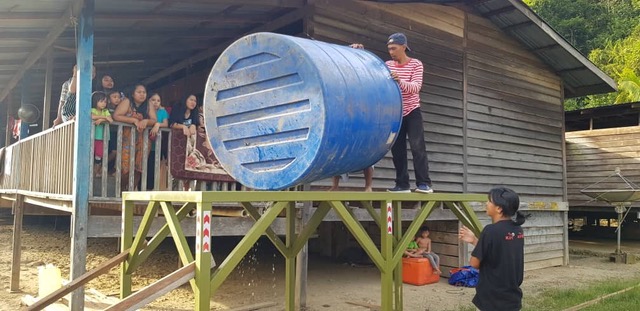
Photo: Installing the water tanks
In Malaysia, the SI President’s Appeal project is implementing the SDG targets with women, girls and communities in Sabah and Sarawak.
Spearheaded by Soroptimist International Region of Malaysia, the project Clean Water to Rural Communities commenced in Kg Gana in Kota Marudu, Sabah, where the community has no access to a regular supply of clean water; only receiving water once a week and resorting to using a makeshift rainwater harvesting system. Soroptimists are working in partnership on the construction of a gravity-fed water system to channel water from a mountain stream to the village and the project is now up and literally running (SDG 6 – Clean Water and Sanitation)!
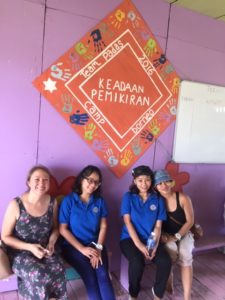
Photo: Members of SI Kota Kinabalu in the village kindergarten they helped build
The project will assist the village women in setting up an organic farm over a two-acre land plot. With a regular supply of water, irrigation pipes can be installed and women can be educated in planting crops for their own consumption such as leafy greens, corn and tomatoes. The steady supply of nutritious food and clean water will help improve the health and well-being of all villagers (SDG 3 – Good Health and Well-Being).
Workshops have also begun on topics such as Personal Hygiene and Sanitation, Water Conservation, Composting of Kitchen Waste and an Introduction to Organic Farming to educate women in producing crops such as corn, pineapples, pepper, chillies and yam (SDG 4 – Quality Education), as well as selling these crops and produce to receive a sustainable source of income (SDG 8 – Decent Work and Economic Growth). Moreover, the women can use their own kitchen waste as compost to fertilise and nourish the crops and this in turn will help protect their environment and the natural biodiversity of the soil (SDG 11 – Sustainable Cities and Communities).
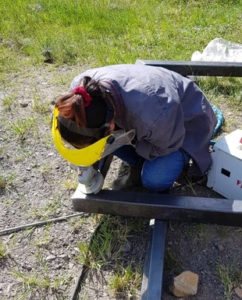
Photo: Photo: Welding the frame for the water tanks
In a second location in Long Tanyit, five young women from the Penan community have been supported in their studies for a Diploma in Welding in Kuala Lumpur, challenging existing gender norms and improving their future career prospects (SDG 5 – Gender Equality). These women have now returned to the village to use their skills on the project, currently supporting the team in the construction of metal support stands for water tanks, which will store water for villagers to use during the drought season.
Once this phase is completed, work will begin on the reconstruction and strengthening of an existing dam, together with the installation of new pipes and a gravity-fed water system. The system will allow for water to feed directly to the village for drinking and sanitation and will support an organic farm. The community will be educated in the use of the system and trained in organic farming techniques.
To see a video of the project in Long Tanyit, please click here.
To make the seventeen Sustainable Development Goals a reality by 2030, everyone must play their part – from individual and community actions, to holding governments accountable for their pledges made when adopting the SDGs. In seeking to improve sustainable, accessible and affordable water products and services, the SI President’s Appeal is directly furthering SDGs 4 (Quality Education), 5 (Gender Equality) and 6 (Clean Water and Sanitation). Yet, with all SDGs inherently intertwined, the reality of implementing the President’s Appeal projects produces a positive impact on many of the other SDGs.
The SI President’s Appeal 2017 – 2019 seeks to raise £350,000 over two years, to continue implementing projects on Women Water and Leadership and contribute to furthering the Sustainable Development Goals.


I Kalawati Pokharel from Nepal, a WASH and Health expert.I have been working in the sector since 1990. There are limited numbers of women leaders and capacity in WASH sector in Nepal and globally as well. The women who are working in the WASH sector are not recognized and not encouraged for their contribution.
I appreciate the initiative of SI which will contribute directly and indirectly the global development goals ( SDG) and embower the women towards impact level results.